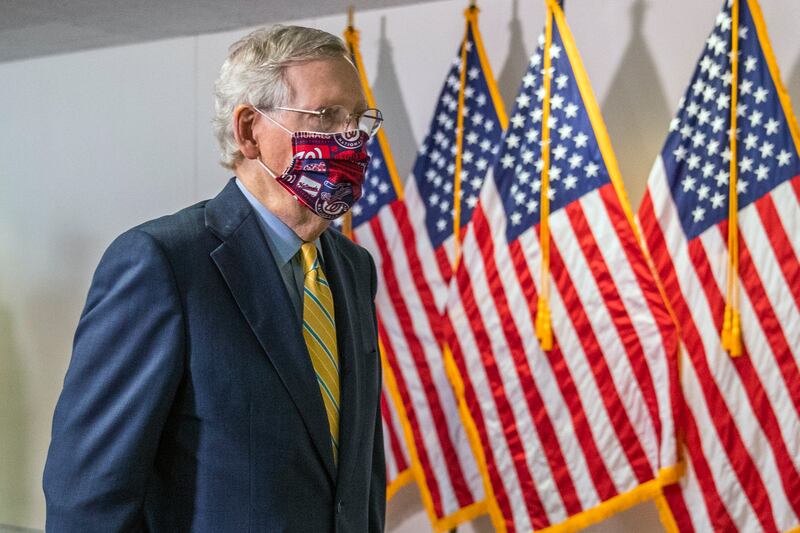The national coronavirus relief package passed in March, dubbed the CARES Act, has proven to be a $2 trillion experiment in government spending during a pandemic. The results are mixed, and as the Senate aims to put forward a plan for more relief this week, we hope it has sense enough to learn from the past.
We argued in March as we do now: It is appropriate for the government to borrow money in response to a crisis. Deficit spending in the spring was necessary to support the day-to-day operations of Americans largely stuck indoors and losing jobs. Unemployment peaked in late March when 6.9 million Americans — roughly two times the entire population of Utah — filed for first-time assistance.
That number has dropped considerably, but Americans still need help. An average of 1.4 million Americans have made new unemployment claims each week for the past month. The number of new infections is climbing as states roll back COVID-19 restrictions, threatening to push Americans back indoors and leaving balance sheets once again vulnerable to the whims of a virus.
Congress should quickly offer the country another relief package. What that looks like is uncertain. Republicans seem keen to issue stimulus checks to individuals but with a lower income cap than before. In a Deseret News op-ed on Sunday, Sen. Mitt Romney argued, among other points, for giving states a portion of their lost tax revenue to ensure health care workers and first responders can keep working. Tax credits, travel assistance and return-to-work bonuses should all be on the debate table, as well.
Still, what any new relief package shouldn’t look like is clear.
On Thursday, Utah Rep. Ben McAdams and fellow Blue Dog Democrats wrote a letter to lawmakers lamenting the lack of oversight during the first round of stimulus. “Never before in our history has Congress spent so much money so quickly as we have in response to COVID-19,” they wrote. “Unprecedented spending, while necessary, creates an unprecedented opportunity for funds to be misused and other forms of mischief.”
Indeed, funds were misused. A report last month from the Government Accountability Office showed the IRS handed stimulus checks worth $1.4 billion to dead Americans. Large organizations whose operations seemed secure received assistance designed for struggling small businesses. An extra $600 a week for unemployment had the effect of helping some out-of-work Americans earn more than their normal paycheck.
Lawmakers should include a number of safeguards to hold government agencies accountable to taxpayers. Foremost among them should be provisions for addressing the national debt.
Sen. Romney summed up the issue: “In a time of crisis like this, borrowing is not inappropriate. But massive deficits and adding trillions to the national debt during the good times is wrong.”
Deficit spending can’t go on forever without serious consequences. A new relief package should include mandates to pay down debts incurred during this unprecedented time. Lifting the country during a crisis and spending responsibly are not mutually exclusive. Doing it right protects Americans now and generations to come.

